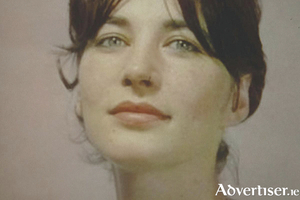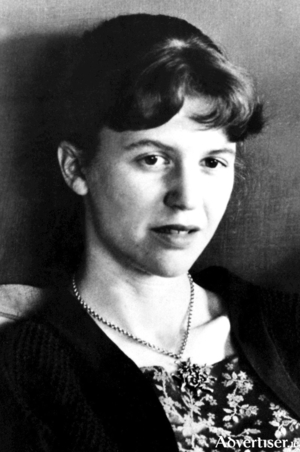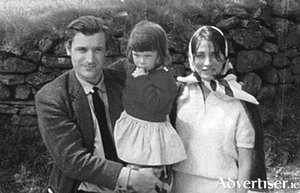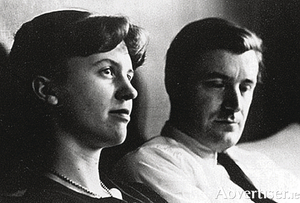Search Results for 'David Wevill'
6 results found.
‘One of the greatest, truest spirits alive’.
In what must be the ultimate irony in the compelling story of Ted Hughes and Sylvia Plath, and their brief, but significant visit to Connemara in September 1962, it was Hughes who returned to find solace and peace there. Sylvia had planned to return that autumn, instead she found, what she thought was a refuge in the former home of WB Yeats in London, and despite the onset of severe depression, remained there to write her best poems. It would probably have saved her life if she had taken up the rented cottage she had paid a deposit for, between Cleggan and Moyard. Instead in London she battled against a bitter cold winter, ‘flu, frozen pipes, and minding her two small children while writing furiously most of the night.
‘I am terrified by this dark thing’

The tragic early suicide of the poet Sylvia Plath, February 11 1963, was to haunt Richard Murphy - who turned down her request to remain with him at Clegan after she was abandoned by her husband Ted Hughes. Murphy, conscious that he was a stranger in a rural society that still very much represented a Catholic ethos, and which had accepted and befriended him, would, he feared, be unforgiven if a married woman lived in his house.
‘Get food and wine to give you strength and courage….’

On the Saturday afternoon, September 15 1962, before that fateful dinner with her husband Ted Hughes, and the poet and publisher Tom Kinsella, Richard Murphy, their host, had taken Sylvia Plath house hunting. She realised that her marriage to Ted was over, and however painful that was for her to accept, she believed that in Connemara with her two children, Frieda and Nicholas, she would be ‘safe from Ted’ and ‘get the first months of separation under way in a fresh setting.’



